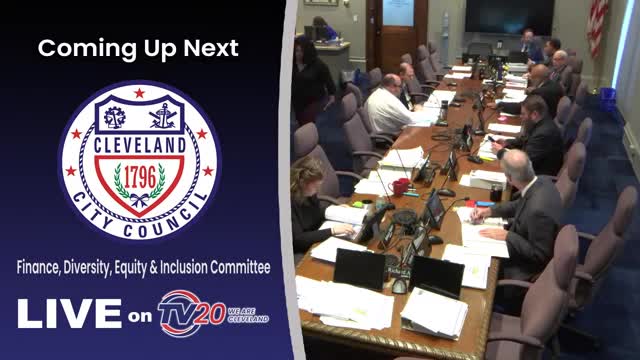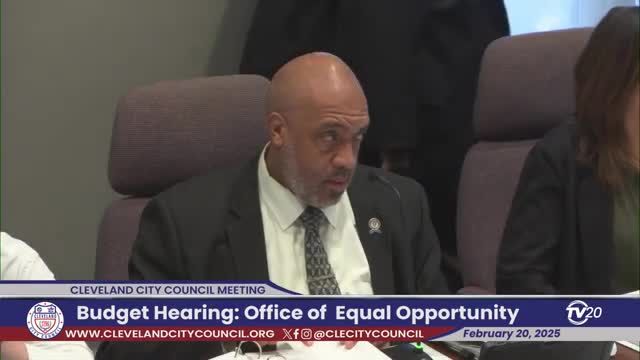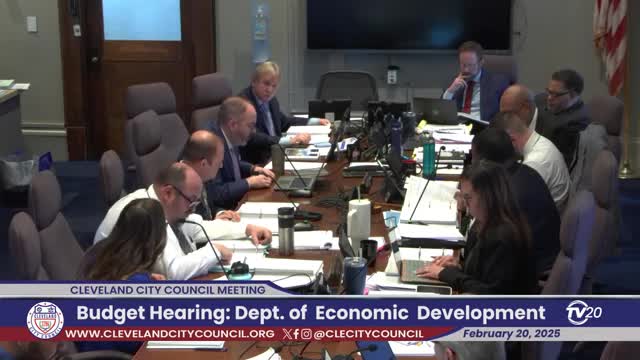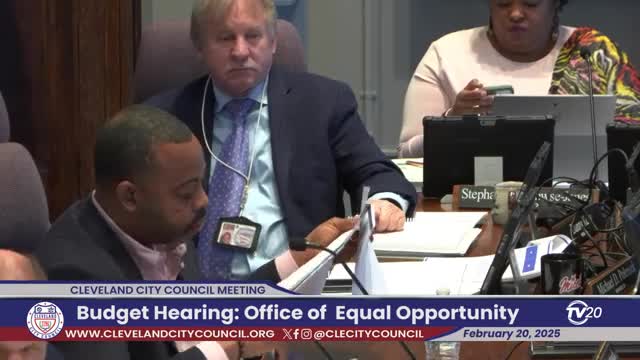Article not found
This article is no longer available. But don't worry—we've gathered other articles that discuss the same topic.

Cleveland housing court judge outlines 2025 budget, describes tactics to hold out‑of‑state landlords accountable

Office of Equal Opportunity adds two positions for community‑benefits work; plans program review after court decision

City economic development department seeks staff growth as council weighs $3M transfers for grants and storefront repairs

